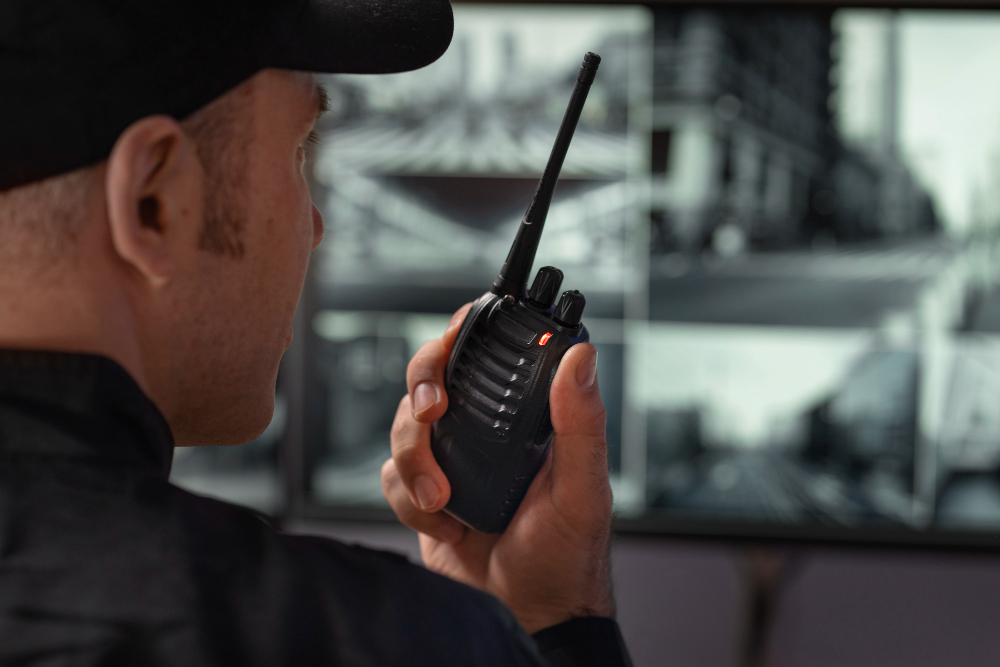
Security is not a 9-to-5 concern. Threats, accidents, and vulnerabilities can emerge at any hour, making it vital for businesses to evaluate whether 24/7 guarding is a luxury or a necessity. While some assume daytime security is sufficient due to the presence of staff and general activity, many overlook the risks that still persist during operating hours. Conversely, nightfall brings a unique set of challenges – isolation, darkness, and lack of supervision, that make businesses more susceptible to criminal behavior. The answer often lies in understanding that security needs don’t pause when the office closes.
A continuous security presence provides a strong deterrent effect. Potential intruders, vandals, or even disgruntled former employees are less likely to act if they know guards are on duty round the clock. Furthermore, businesses that manage sensitive data, expensive equipment, or host high-profile clients need a security setup that’s as consistent as their operations. 24/7 guarding sends a clear message: your business takes protection seriously—at all times.
Comparing Day and Night Security Risks
The risks your business faces during the day differ significantly from those that occur at night. During the day, the primary security challenges come from crowd management, internal theft, unauthorized access, and public disturbances. Since most operations are in full swing, guards play a dual role – ensuring safety while also guiding visitors, managing deliveries, and assisting in emergency protocols. They serve as front-line representatives of your brand, offering both protection and professionalism.
At night, however, the dynamics shift. The premises are largely vacant, lights may be dimmed, and the absence of natural surveillance heightens vulnerability. This is when properties are most prone to break-ins, trespassing, vandalism, and even sabotage. Without a physical security presence, these threats can go undetected for hours. Moreover, if an emergency like a fire, gas leak, or water damage occurs overnight, the absence of trained personnel could lead to irreversible damage or costly downtime.
In short, while daytime guarding maintains operational safety and flow, nighttime guarding preserves the integrity of the property when no one else is watching.
Which Businesses Truly Require 24/7 Guarding?
Not every business needs round-the-clock security, but for those operating in high-risk environments or handling valuable assets, 24/7 guarding is often essential. Warehouses, logistics hubs, manufacturing plants, banks, hospitals, educational institutions, luxury retail outlets, and data centers all benefit greatly from having a non-stop protective presence.
These sectors face constant exposure to internal and external threats—from organized crime and employee misconduct to industrial sabotage and environmental emergencies. In such settings, the presence of trained security personnel not only protects physical assets but also ensures compliance with safety protocols, manages emergencies, and prevents unauthorized data access or equipment tampering.
Additionally, commercial buildings located in isolated or poorly lit areas are more vulnerable to opportunistic crimes, especially during weekends or public holidays. Even residential societies with high-profile residents are increasingly opting for 24/7 guarding models to ensure a consistent level of safety and response capability.
Integrated Security: Merging Human Intelligence with Technology
Although modern security systems are increasingly tech-driven, human intelligence remains irreplaceable. CCTV cameras, motion detectors, access control systems, and alarm responses are essential tools, but they are only as effective as the people monitoring and responding to them. A camera can record a break-in, but only a security guard can intervene in real time.
A robust security setup combines physical guarding with smart surveillance technology. Security personnel can patrol blind spots that cameras miss, respond instantly to triggered alarms, and make judgment calls during unexpected events. They can also coordinate with emergency services, perform evacuations, and protect employees or visitors during crises. This human-technology synergy provides layered protection that is proactive rather than reactive, ensuring the business is fortified against all forms of risk—whether it’s a power outage, suspicious movement, or a violent intrusion.
Is It Worth the Investment? The Long-Term Value of 24/7 Security
The cost of hiring security guards round-the-clock can seem steep at first glance, especially for SMEs or businesses in lower-risk sectors. However, the true cost of poor security, ranging from theft and vandalism to reputational damage and liability lawsuits – is often much higher. Moreover, insurance companies tend to favor businesses that implement 24/7 guarding, often resulting in lower premiums and better claims processing.
Clients and employees also feel safer in a well-guarded environment, boosting both trust and retention. In high-stakes sectors, security can even be a competitive differentiator, offering peace of mind to customers, stakeholders, and investors. Think of 24/7 guarding not just as a protective measure, but as a strategic investment in business continuity, reputation management, and operational resilience.
